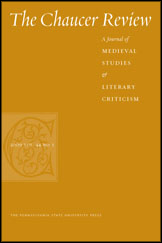
There are a number of electronic resources you can use to research your area. The databases on this page are some of the more useful ones. You can also search for a specific journal using the search box below. If you cannot find what you need, please contact the Subject Specialist using the contact information under the Home tab of this Guide.
NOTE: Due to license agreements, some journals and/or specific issues may not be available in full-text.
If you are faculty, staff, or currently enrolled in classes at Jacksonville State University, you can access the Library's electronic resources from your home computer.
Access is granted through an authentication application called EZproxy. It is very easy to use, and it allows our users to access our resources from any browser (Internet Explorer, Firefox, Chrome, etc.) or service provider (AOL, Mindspring, etc.).
When you're prompted for a student/staff ID and your last name, type in your student/staff number (all numbers, no dashes, no spaces) including ALL leading zeroes and your last name. For example:
Click the "Submit" button and you're in! Once you have been authenticated, you can begin searching the resource. If you have any problems accessing the databases, use the contact information in the Help box above to contact us.
To find articles on a topic, you will need to search in databases that index the articles in various journals or, occasionally, in books, on that topic. For research on Geoffrey Chaucer or medieval English literature, you may want to start with the following databases. For additional databases, redirect to the Supplemental Databases tab of the LibGuide for English Language and Literature: Electronic Databases by Subject.















Founded in 1966, The Chaucer Review publishes studies of language, sources, social and political contexts, aesthetics, and associated meanings of Chaucer’s poetry, as well as articles on medieval literature, philosophy, theology, and mythography relevant to study of the poet and his contemporaries, predecessors, and audiences. It acts as a forum for the presentation and discussion of research and concepts about Chaucer and the literature of the Middle Ages.
Per PR1901.C47
Electronic
| from 07/01/1966 to 01/31/2006 in JSTOR | ||||||||||
| from 01/01/2004 to 04/30/2012 in Academic Search Premier | ||||||||||
| from 01/01/2004 to 04/30/2012 in Literary Reference Center Plus | ||||||||||
| from 01/04/2005 to 01/31/2012 in Art Full Text (H.W. Wilson) | ||||||||||
| from 01/04/2005 to 01/31/2012 in Humanities Full Text (H.W. Wilson) | ||||||||||
|
from 01/04/2005 to 01/31/2012 in OmniFile Full Text Mega (H.W. Wilson) Comitatus: A Journal of Medieval and Renaissance Studies Comitatus, the graduate journal sponsored by the UCLA Center for Medieval and Renaissance Studies, publishes articles by new scholars working in any field of the Middle Ages or Renaissance. The annual journal is distributed internationally to libraries and individuals. Beginning with volume 43 (2012), Comitatus will be part of the Project MUSE online collection. Electronic
The first issue of Exemplaria, with an article by Jacques Le Goff, was published in 1989. Since then the journal has established itself as one of the most consistently interesting and challenging periodicals devoted to Medieval and Renaissance studies. Providing a forum for different terminologies and different approaches, it has included symposia and special issues on teaching Chaucer, women, history and literature, rhetoric, medieval noise, and Jewish medieval studies and literary theory. Electronic
Since 1993, The Medieval Review (TMR; formerly the Bryn Mawr Medieval Review) has been publishing reviews of current work in all areas of Medieval Studies, a field it interprets as broadly as possible. The electronic medium allows for very rapid publication of reviews, and provides a computer searchable archive of past reviews, both of which are of great utility to scholars and students around the world. TMR operates as a moderated distribution list. Subscribers receive reviews as e-mail; TMR posts each review as soon as the editors have received and edited it. There is no paper TMR. Once posted, reviews are archived and available for viewing, searching, printing, etc. on this website (https://scholarworks.iu.edu/dspace/handle/2022/3631). Electronic
Per PN661.S6 Electronic
|
||||||||||

Ref PE58.E6 and <http://ywes.oxfordjournals.org/content/by/year> [YWES actually is a periodical, an annual; but Houston Cole Library treats annuals as books rather than periodicals, so this one is cataloged and shelved as a reference book.]
Levels of electronic database searching
Electronic databases may be searched on three levels:
Advantages of searching a native (single) database
Disadvantages of searching a native database
Advantages of simul-searching multiple databases by provider
Disadvantages of simul-searching multiple databases by provider
Advantages of Gemfinder Discovery Search
Disadvantages of Gemfinder Discovery Search
To cross-search EBSCOhost, Gale/Cengage, or JSTOR databases:
1) Go to the library's Electronic Resources page (http://www.jsu.edu/library/resources/index.html)
2) Scroll down to Frequently Used Resources
3) Select the database vendor you wish to cross-search
4) Follow instructions provided by the vendor
Many authors have groups of admirers who study their works and even form organizations which issue publications devoted to that author. Yet these publications are so obscure that they are not indexed in any of the major databases. Here is an area where a basic internet search can be useful, since many of these publications have contents pages, and even selective full text of articles, available online. The search template is simple. In the search box of the internet search engine, type the name of the author, within quotation marks, followed by the word "society" (no quotation marks). For example:
"john cooper powys" society
Whether the author's group calls itself an Association, a Circle, or a Society, within the results list the search brings up should be a link to that group; and connected to that link, access to resources which might otherwise remain unavailable.